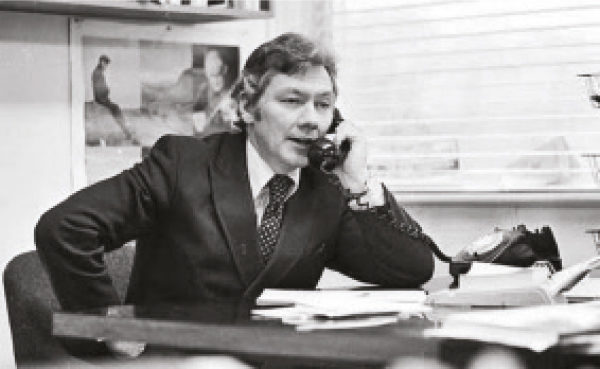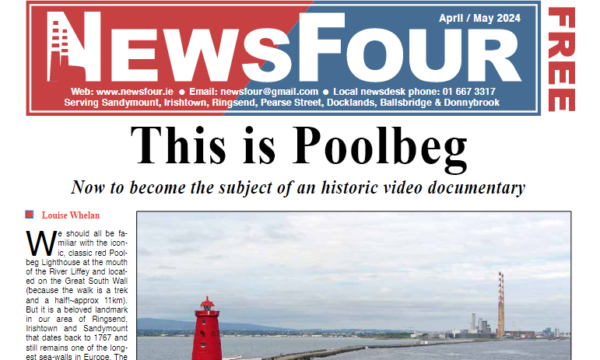
By Eoin Meegan
There was a widespread outpouring of grief across the country when the news broke of the sad passing of Gay Byrne last month. It was almost a cathartic experience for the nation.
Here was a man Ireland had grown up with, shared much of its most intimate moments, and now was parting company with for good. It’s hard to find valedictory words. Much has been written about Gay over the weeks since his parting, and that memorable, quasi state funeral in the Pro Cathedral. Some of it hyperbole, but much of it coming from the heart.
Byrne dominated the airwaves in this country through the 60s, 70s, 80s and 90s with his television show the Late Late, and also his radio show. During his tenure as host of the Late Late we witnessed some of the best moments of television anywhere: the bishop and the nightie, the Annie Murphy interview, the Terry Keane expose, the demolition of the inflated ego of Pádraig Flynn, his rapport with Sinead O’Connor, the groundbreaking interview with David Norris long before it was fashionable to talk about homosexuality, just to name check a few.
Who can forget when he demonstrated to the nation, how to use the dreaded condom (how backward were we?) Nell McCafferty aptly described Gay as “a political weathervane.”
Gay had the ability to tap into the psyche of the nation, to know just how far to push out the envelope, and when to hold back. He was never one to shy away from controversy. If he ventilated issues that were previously considered taboo, it wasn’t because he was pushing a liberal agenda, as has been sometimes misconstrued. Gay was himself inherently conservative.
Rather, it was because he had the insight to see the change that was waiting to happen, that would happen anyway, and simply helped facilitate its passage. Much of what he did, found disfavour with the mighty powers of conservatism which held this country in its deathly grip for so long.
There were the predictable calls from certain quarters for him to resign or be fired. But Gay always held his nerve, and to their credit so too did RTÉ. It was as if everyone knew these conversations needed to take place.
I think President Michael D Higgins summed it up perfectly, when on the special tribute Late Late show that was aired by RTE just days after the broadcaster’s death, he said: “He [Gay] provided a safe non-judgmental space where you could begin to think in a modern way.”
To think in any way was not something people knew how to do back then. It was only when we left these shores, as so many had to do out of necessity, that we realised how stifling it was here.
So while the iconic Late Late might be Gay’s legacy, I think it was his radio show where his real genius shone. His listening skills were legendary. Hearing Gay read letters in that urbane voice from people often in the depths of despair, one sometimes got an eerie sense of intrusion into another’s private pain.
Paralysis and frustration ran deep. Gay managed it all with sensitivity and compassion. Particularly memorable was the Anne Lovett affair. When that story broke the nation was visibly shaken, and very angry. Even if we still didn’t know what to do, there was a sense that change would have to come. I think his handling of that issue made it easier for programmes such as States of Fear to happen.
In later years this art of listening would again blossom in The Meaning of Life, which became a kind of second career for him. Gay could be present and just allow others to tell their story without unnecessary interruption from the interviewer; a lesson many of today’s broadcasters could take on board.
No stranger to misfortune himself Byrne was kept on a three-month contract up until 1985. By then he was more than a household name, he was part of the fabric of our consciousness. In light of the current controversy around salaries that is raging in RTE this begets its own irony.
Nor was he paid the inflated salary that TV presenters today seem to feel they’re worth. Then there was the well-aired Russell Murphy affair, where Gay, along with other high profile public figures lost a lot of money. I’m not sure if he ever fully recovered from that betrayal. Gay was a man with deep insecurities, although he never let them interfere with his professionalism. Indeed, for a man who lived his life in the public gaze he managed Houdini-style to keep his private life just that: private.
Gay could be charming, sarcastic, witty, engaging, infuriating even. His avuncular personality meant the moniker ‘Uncle Gaybo’ was a fitting one. He was loved by people across a wide spectrum of the population.
Gay began his broadcasting career with RTE in 1958 presenting a 15-minute jazz programme every Monday night. Ironically, he bowed out with his very popular Sunday night jazz programme on Lyric FM. You could say he came full circle.
Gay died after a battle with cancer at his Howth home in November, survived by his wife Kathleen, their two daughters Suzy and Crona, and grandchildren. He contributed in no small way to the tolerant and outward looking Ireland that we take for granted today.



